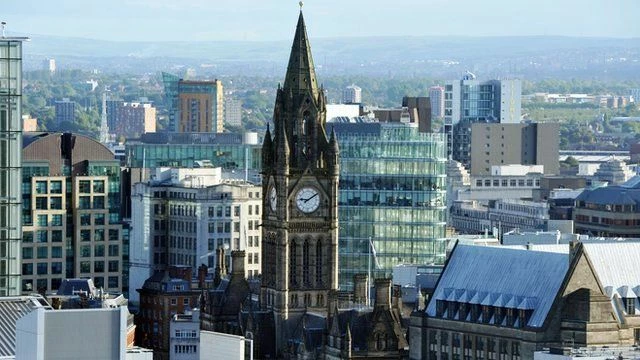
Partner Article
Powering Greater Manchester: how will we fuel our future
The author of a new independent research paper suggests that Greater Manchester has a key role to play in developing a decentralised low carbon and renewable energy generation.
The UK’s energy system is changing more rapidly than at any time in the last half century and the changes could affect Greater Manchester’s vision for long term sustainable growth.
In the independently authored New Economy Working Paper, “Powering Greater Manchester: how will we fuel our future?”, Helen Seagrave considers four future energy scenarios and concludes that if the conurbation continues ‘business as usual’, it will struggle to fully achieve its carbon reduction target of 48% by 2020.
The report specifically highlights that although the conurbation’s 1TWh* renewable electricity target for 2020 (as set out in the Greater Manchester Climate Change Strategy and Implementation Plan) is likely to be met; the renewable heat target of 3TWh is very challenging.
In addition, both the renewable energy and renewable heat targets represent a very small percentage of the conurbation’s overall energy use and a small percentage of its estimated potential, suggesting that the targets should be considered as a floor not a ceiling for the amount of renewable generation required across Greater Manchester.
Greater Manchester is nationally leading on the low carbon agenda – having established a dedicated Low Carbon Hub – and the report suggests that there is an opportunity for Greater Manchester to be even more proactive in its role in shaping and delivering the energy system, to positively impact on the conurbation’s growth, well-being and prosperity.
The Working Paper sets out three key actions for Greater Manchester:
• increase the rate of deployment of low carbon and decentralised energy, particularly heat, across the conurbation;
• find ways of making sure that businesses and all parts of the community are involved and can therefore benefit from renewable and low carbon energy developments; and
• ensure that the economic impact of local jobs and growth is maximised as a result of the investments made to develop decentralised renewable energy,
Todd Holden, director of low carbon policy and programmes at ENWORKS, said: “Securing affordable, low carbon energy is one of the greatest challenges we face. This report makes it clear that by taking local control of our energy, Greater Manchester can both meet this challenge and secure real economic and social benefit for all of its residents.”
Mike Emmerich, chief executive of New Economy, said: “This independently authored paper provides further evidence on the challenges that Greater Manchester faces in securing a low carbon future.
“The paper makes it clear that for Greater Manchester to achieve its ambitions for growth, well-being and prosperity; low carbon energy has a critical role to play.”
This was posted in Bdaily's Members' News section by Simon Malia .








 We must make it easier to hire young people
We must make it easier to hire young people
 Why community-based care is key to NHS' future
Why community-based care is key to NHS' future
 Culture, confidence and creativity in the North East
Culture, confidence and creativity in the North East
 Putting in the groundwork to boost skills
Putting in the groundwork to boost skills
 £100,000 milestone drives forward STEM work
£100,000 milestone drives forward STEM work
 Restoring confidence for the economic road ahead
Restoring confidence for the economic road ahead
 Ready to scale? Buy-and-build offers opportunity
Ready to scale? Buy-and-build offers opportunity
 When will our regional economy grow?
When will our regional economy grow?
 Creating a thriving North East construction sector
Creating a thriving North East construction sector
 Why investors are still backing the North East
Why investors are still backing the North East
 Time to stop risking Britain’s family businesses
Time to stop risking Britain’s family businesses
 A year of growth, collaboration and impact
A year of growth, collaboration and impact